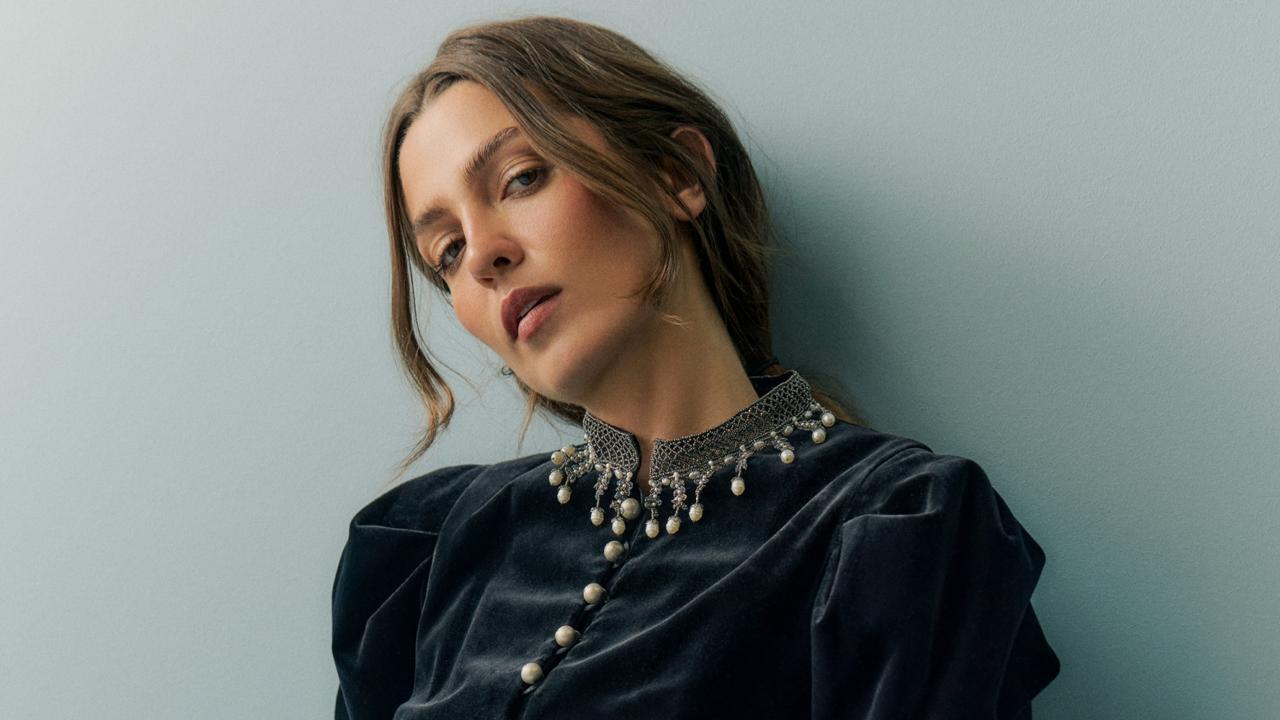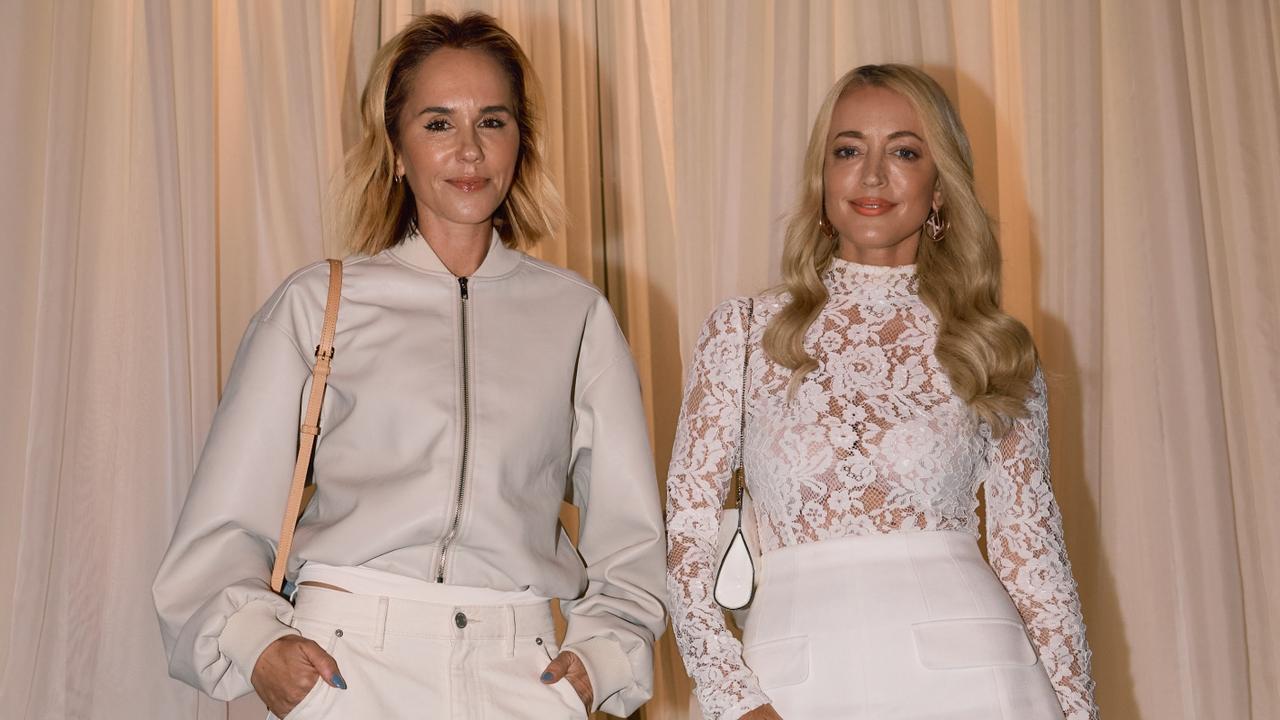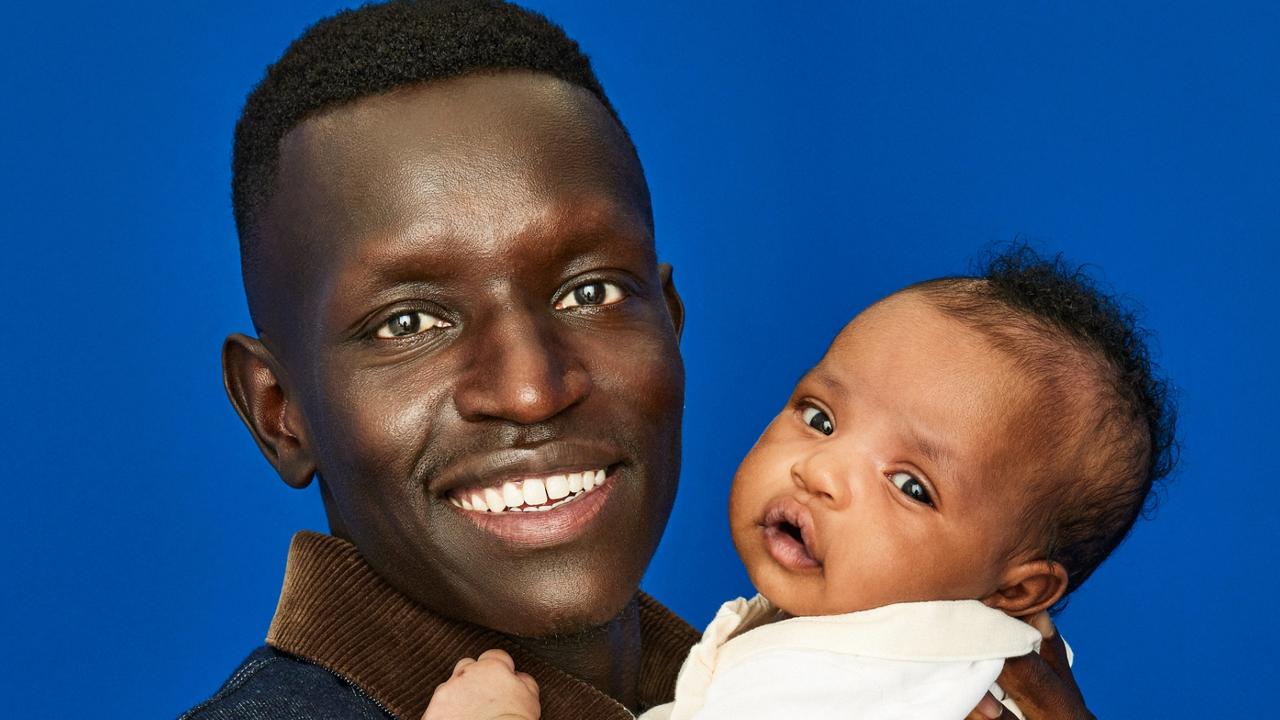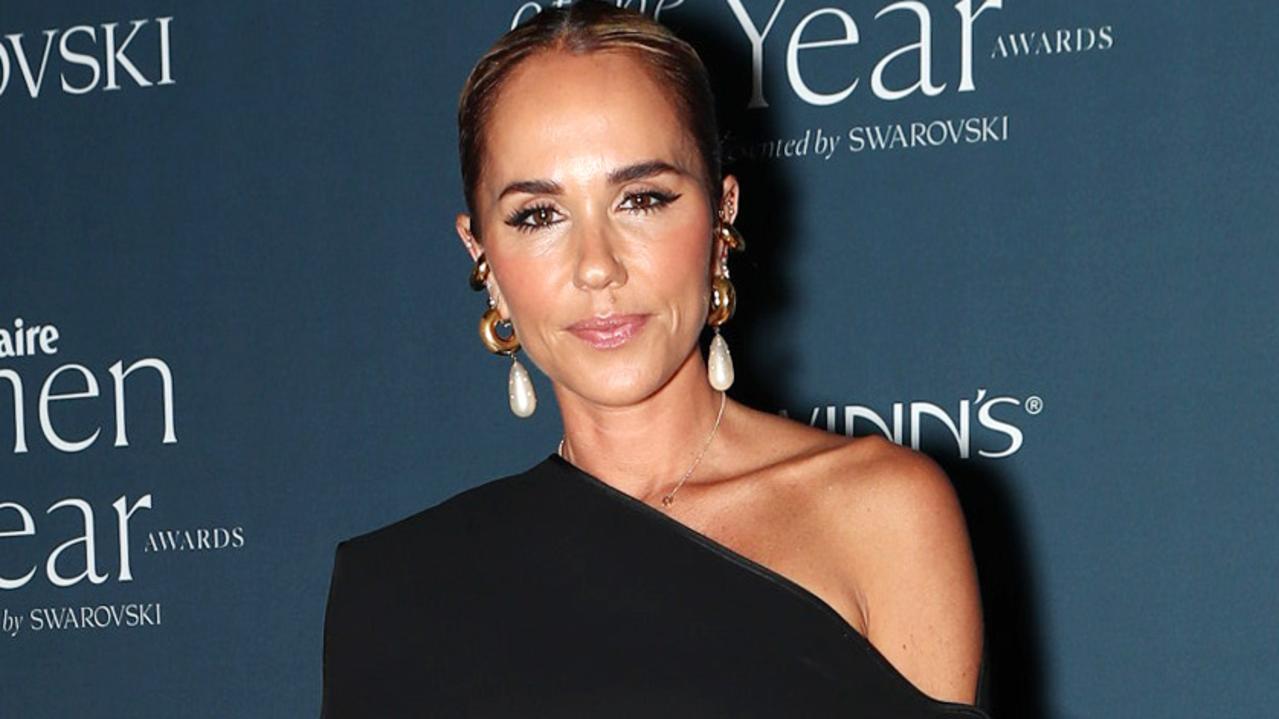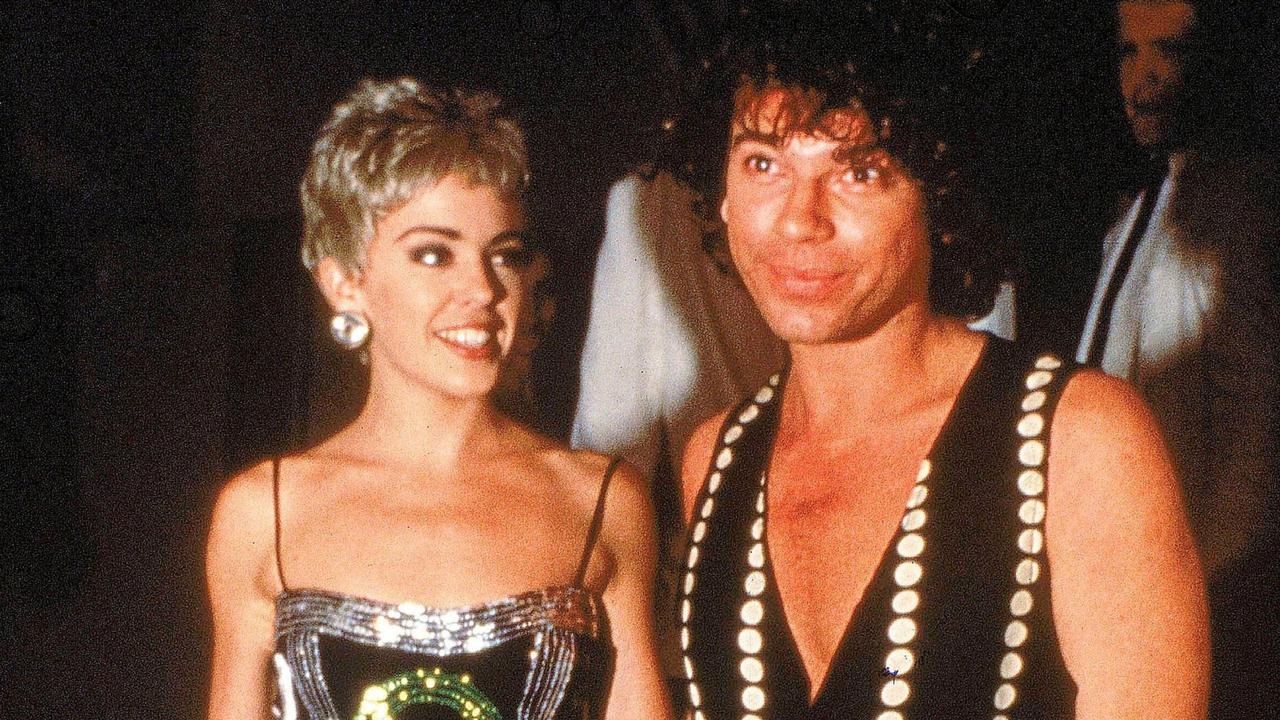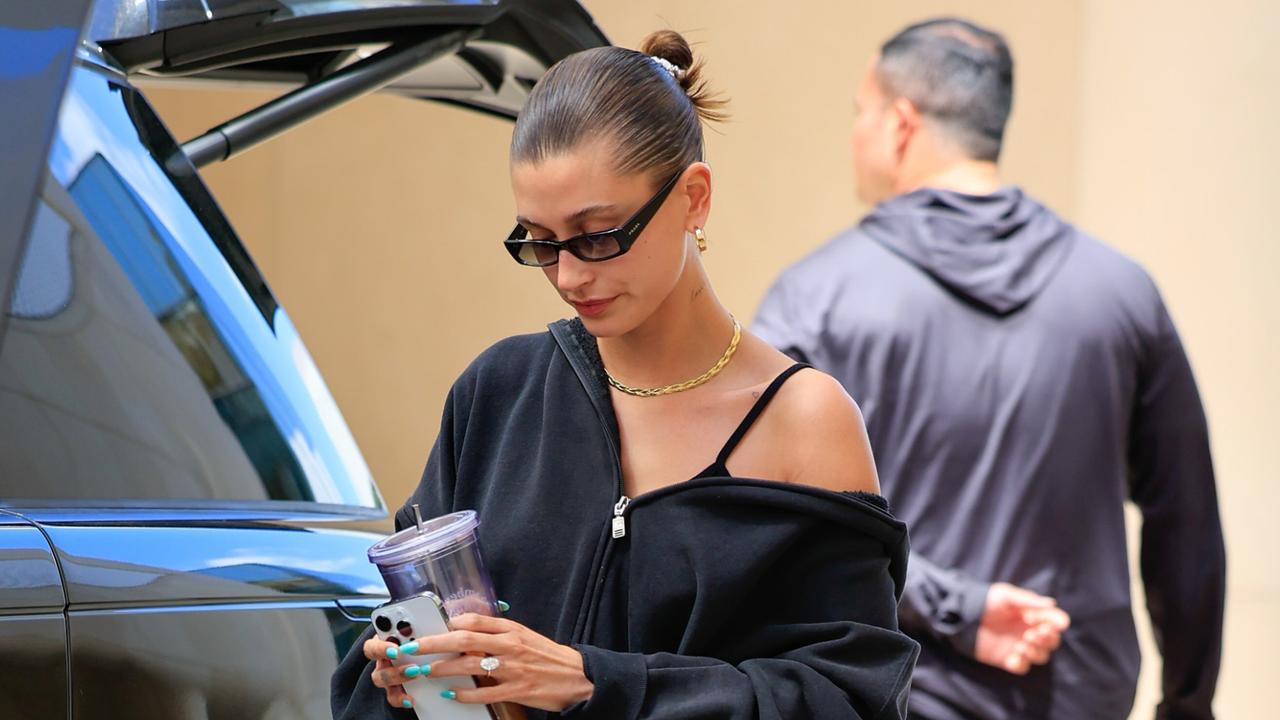‘It’s incredibly bizarre to me’: Benji Marshall’s wife Zoe Marshall responds to controversy
Amid recent criticism over their decision to go on a mid-season holiday, former NRL star Benji Marshall’s wife Zoe has revealed why their family comes first.
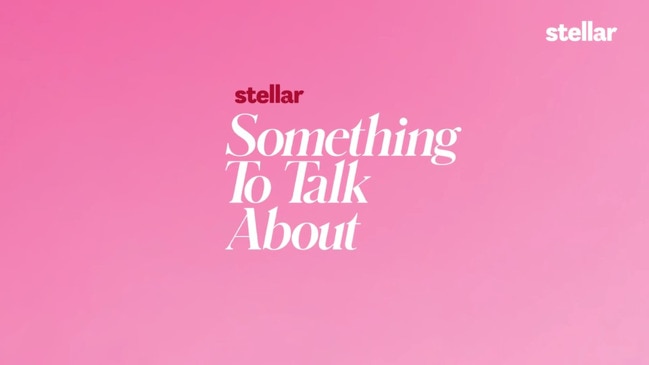
Stellar
Don't miss out on the headlines from Stellar. Followed categories will be added to My News.
Almost 20 years ago, writer and media personality Zoe Marshall went through such a deeply traumatic series of experiences – the death of her mother, a family rift and a physically and psychologically abusive relationship – that she considered suicide.
Seeking a way to survive, she explored manifestation (or co-creation, as she calls it) and started to shift her outlook through action, eventually finding love, becoming a mother of two and reaching career peaks.
On the eve of turning 40, she speaks to Stellar’s podcast Something To Talk About on the inertia around Australia’s domestic violence crisis, her new co-creation platform, and why her husband’s views on work-life balance are “the hottest thing ever”.
Stellar: Everyone is talking about manifestation. During lockdown in 2020, Google searches for it went up 600 per cent. There are currently more than 13 billion TikTok views for the hashtag “manifesting”. But for you, Zoe, it’s not just a trend or a buzzword.
Zoe: My first intro to manifesting was [the documentary based on Rhonda Byrne’s book] The Secret. Do you remember that from nearly 20 years ago? And you could only get it if you knew someone that knew someone that had the DVD. The marketing was so brilliant. I remember my mum was really sick at the time with cancer, and she said, “I’ve got this thing I want to show you,” on video or DVD, and I remember watching it with her. We watched the whole thing and I turned to her and said, “So what was the secret?” It was a little
bit too much, that concept as a 20 or 21-year-old. She died a month later and it was really through having a lot of hopeless and desperate circumstances following her death that I hit my rock bottom. I found myself in a really violent relationship, and had a huge falling out with my family. I was an only child, isolated, alone and suicidal. I didn’t know what the next step was.
Listen to the full interview with Zoe Marshall on the latest episode of Something To Talk About:
So people call it manifestation, but like to call it co-creation. It was the first time I was deeply seeking a way to heal, and through some very different methods of workshops and retreats and things that are maybe a little unorthodox, I started to learn that we have the ability to align ourselves with things we want in life, and that we have the power to create those things.
I began to manifest unintentionally – and then learnt along the way lots of different techniques and tools. It’s been 20 years now, and it doesn’t actually make sense when you look at where I was to where I am now how that could happen.
Sceptics could say it’s luck or “you’re resilient” or maybe “you’re really intelligent”, and sure, those things do help, but for me there are too many woo-woo, mysterious, serendipitous moments – which I deeply question all the time – that show me this is a real thing.
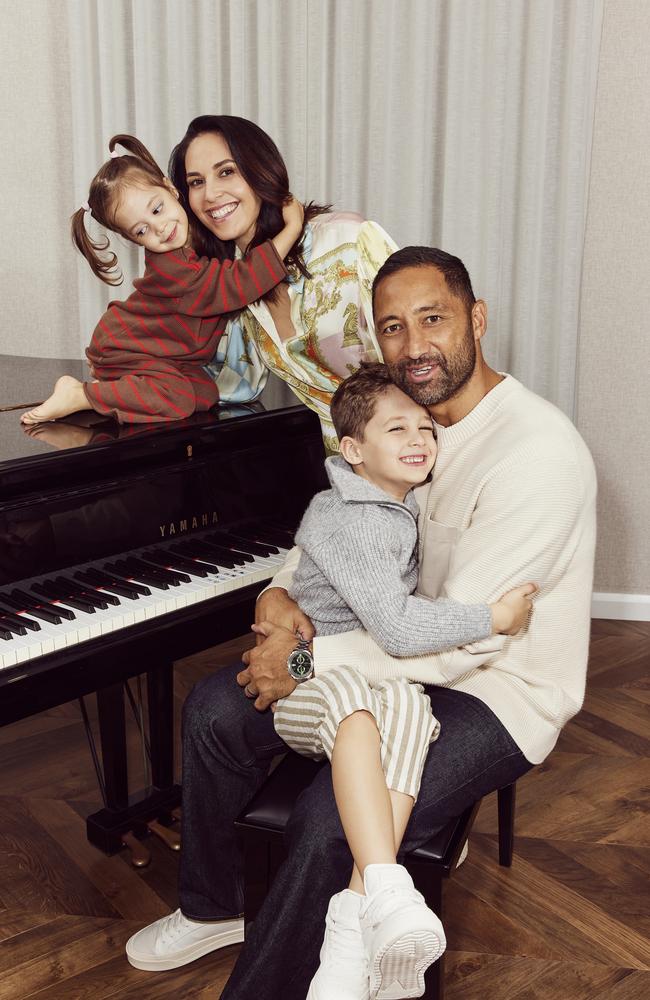
Stellar: What role does manifestation play when bad things happen? Is there a risk that this practice tells people they’ve brought trauma or hardship upon themselves?
Zoe: It’s a really hard thing to listen to teachers, especially in the ’80s, talk about how the law of attraction is “like attracts like”. Which it is, but that would mean in essence that my mum dying, finding myself being raped every day in that relationship, and being beaten – I attracted that. That’s not true. Nobody deserves abuse or trauma. They have not brought that upon themselves.
I’ve worked for four years producing a podcast called The Deep where I’ve spoken with survivors of child sexual assault and all these things. You can never say a child had the ability to manifest that.
What I know to be true is you can go from rock bottom to neutral through manifestation. You can’t go from suicidal ideation or tendencies and depression and anxiety into manifesting your new job. You have to get back to that neutral place. That takes time, energy and deep healing. This isn’t toxic positivity. This isn’t “you’ve just lost your job and we’re just going to think positive thoughts”. No, we’re going to sit and be angry and frustrated and scream into a pillow because it’s the only way through. I’ve created what I want to call a movement, which is Ariise. It’s a community and a course, and it will be a book, that teaches this in a different way because [manifestation] can often be seen as privileged, and that’s why I felt a lot of shame around it. This is for everybody, no matter where you are.
Stellar: As you’ve mentioned, the moment you turned to manifestation was when your mother died from cancer 18 years ago. What do you think she would think of how it has become such a core part of your life and work now?
Zoe: She probably would’ve said, “What took you so long?” It’s a really strange thing that my mother was the one who showed me The Secret. She didn’t have that much attachment to it and also the message is in there that you can heal your cancer. There’s a literal segment in that movie. I think she would be hopeful that the way that I’ve arrived here through doing The Deep and having the traumatic conversations for four years has given me respect and empathy for the people that want this work, but have never felt like it was for them. I feel that’s her gift in that. And for all of the sceptics or all of the people that are like, “Well then, why did my mum die?” or “Why did this happen to me?”, it’s like, me too. But I really don’t think I would be doing this work if it all hadn’t happened in the way it did.

Stellar: When you look back on some of the hardest times in your life, was the falling out with your family one of them? [Following her mother’s passing, Marshall had a falling out with her family caused by her decision not to inform them that her mother was dying, because she wanted peace and calm on her last day with her in hospital.]
Zoe: I’m deeply forgiving. No-one can believe it if they knew the crux of the story, but we are all reunited. We are all connected. Some of those relationships are tainted, but I wasn’t willing to lose everybody. I just wasn’t. I guess there’s a wisdom in knowing that people – and it circles back to how you’re raised – we only know what we know. They can only turn up for you like they’ve been shown, and so equally as much betrayal and pain as I had, I had deep, strange wisdom for such a young person that they could only give me what they could at that time. I had to call them before Ariise launched to say, “Hey, this is a really important part of this story. I’m going to be talking about this publicly. I won’t name names, but it’s probably going to make you feel bad because this is what’s happened.” And that feels really healthy for me to even be able to consider their feelings in my version of the truth. Their version of the truth might be very different. Maybe I was unreasonable and hysterical, and there are two sides to every story, but I was very willing, years down the track, to have honest conversations where they could meet me with that.
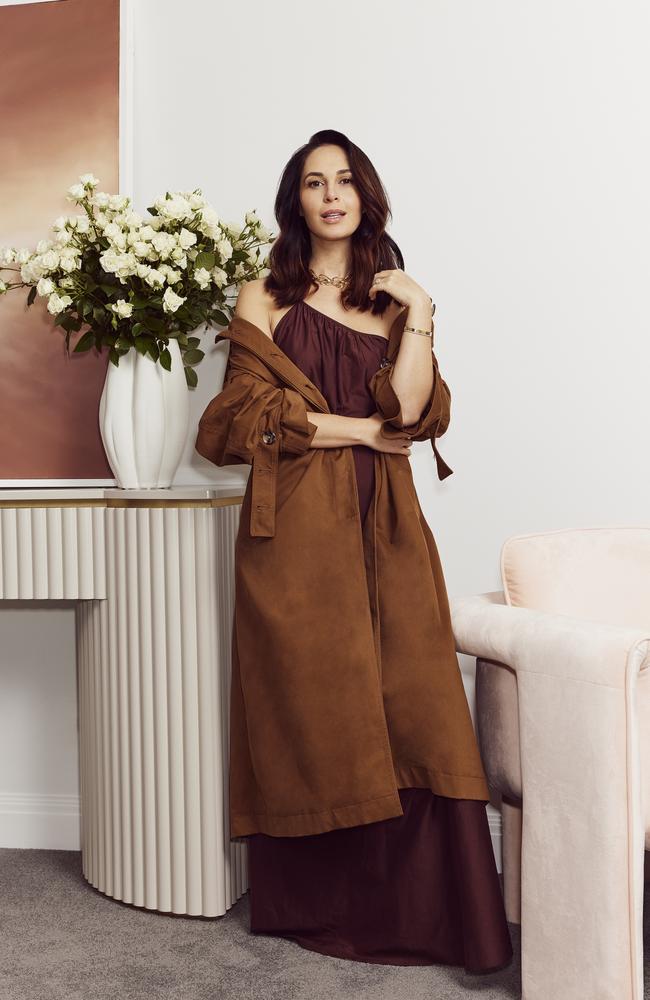
Stellar: Not too long after you lost your mum, you were in a relationship for a few years in which you experienced both physical and psychological abuse. Domestic and family violence has become a national conversation this past year. As a victim-survivor, do you think we’ve come any further in enacting change?
Zoe: I wish I could say we have, but I truly don’t think so. I think we have intentions to make a difference. I’m seeing all these people online advocating for women, and we have rallies and we have conversations and we have debates and all of these things. But it feels to all of the victims that we’ve lost, and all of those surviving, and then some that are still currently in the position, it feels supremely disrespectful because the truth is no-one cares that much. And they don’t care that much because it’s happening to women. It feels really triggering in the body when you see everybody doing their bit, but you really know that nothing is going to change. I think we all know that. I think you can have a royal commission and you can do all of the things, and you can have a f*cking 10-year plan … Sorry, but if you’re losing a woman every four-and-a-half days, then in the next two weeks there’s more, and the next month there’s more and then … Why don’t we care? And I don’t mean this to the people listening. I believe women do care. I believe minorities care. I don’t believe powerful white men care, because in their circles it’s a bit gross and ugly to talk about, and it’s probably happening to some of them.
Stellar: You’ve been married for 11 years to Benji Marshall, a well-known former NRL player and now coach. You and Benji met at difficult times in your lives: you had come out of that abusive relationship and he had lost his father. Do either of you think that you would be where you are today if you hadn’t met?
Zoe: God, I’ve never been asked that question. I think that life would look so different but I think that he has the ability and the wisdom to have the same career success. Would he be as emotionally intelligent and connected? I don’t know, because I don’t know who his partner would have been. I think that we’ve just been able to bring out the best in each other, but he’s like 50 per cent responsible for that. I can’t take all the credit. He is a seriously incredible person.
Stellar: Earlier this year, Benji made headlines after he dared to set work boundaries and prioritise his family between 5pm and 8pm every night. There was such an outcry that he inexplicably had to clarify this didn’t mean he doesn’t take his work seriously. What did you make of it all?
Zoe: It was just the hottest thing I’d ever seen. Women were losing their minds. He was this poster boy for working dads. It’s strange for somebody to work an 11-hour day and then be berated for existing and feeding the family unit – because what
is the expectation? That your family life crumbles, you lose everything meaningful to you, you put everything into your work but your mental health suffers? You have nothing else but your job – and then, at the end of the day, you have nothing and nobody because you gave it all to your work? It’s classic patriarchy that we have this expectation that we feed this beast of success until the wheels come off.
Benji knows and I know and you know that rest is potent for creativity. Playing golf, which I encourage him to do weekly, is essential for him to get in that openness for thoughts to drop, for creativity to rise and problem-solving to happen. You can’t do that under duress with meetings and people in your space every day. I’m still learning this. I’m not great at it.
For Benji to say, “I need three hours with my family,” which let me tell you, he cooks dinner every night, he bathes the kids [son Fox, 6, and daughter Ever, who turns three this week] and then we both put them to bed. He doesn’t have downtime at 5pm. He’s daddying at 5pm. We might get to connect at 8pm, and then he’s back on the computer. So it’s incredibly bizarre to me that journalists and people have the audacity to think that he can’t have joy. How do you think he’s going to be the best coach he can be if he’s not joyful or fulfilled or connected? It’s bananas.
Stellar: Your platform, Ariise, is launching on June 17, which is also your 40th birthday. What will that look like for you?
Zoe: I’m having an intimate dinner with my very closest friends. The theme is gowns, gloves and gorgeousness, so you have to really turn up. I really want to honour each and every person that has been in my life. And then, just to kind of put an extra cherry on top about how amazing Benji is, I’m going to Europe. I was watching The White Lotus [season two of the comedy-drama was set in a hotel in Sicily] and said, “I’ll be there for my 40th birthday”. A lot of aligned action and manifestation happened, but I’m going to be there just after my 40th with my best friends. Want to come?
Learn more about manifestation community Ariise at ariise.com.au. If you or someone you know is in crisis and needs help, call Lifeline on 13 11 14 or Beyond Blue on 1300 224 636. For domestic or family violence support, call 1800RESPECT.
Listen to the full interview with Zoe Marshall on Something To Talk About below. See the shoot inside Stellar on Sunday.
Originally published as ‘It’s incredibly bizarre to me’: Benji Marshall’s wife Zoe Marshall responds to controversy

